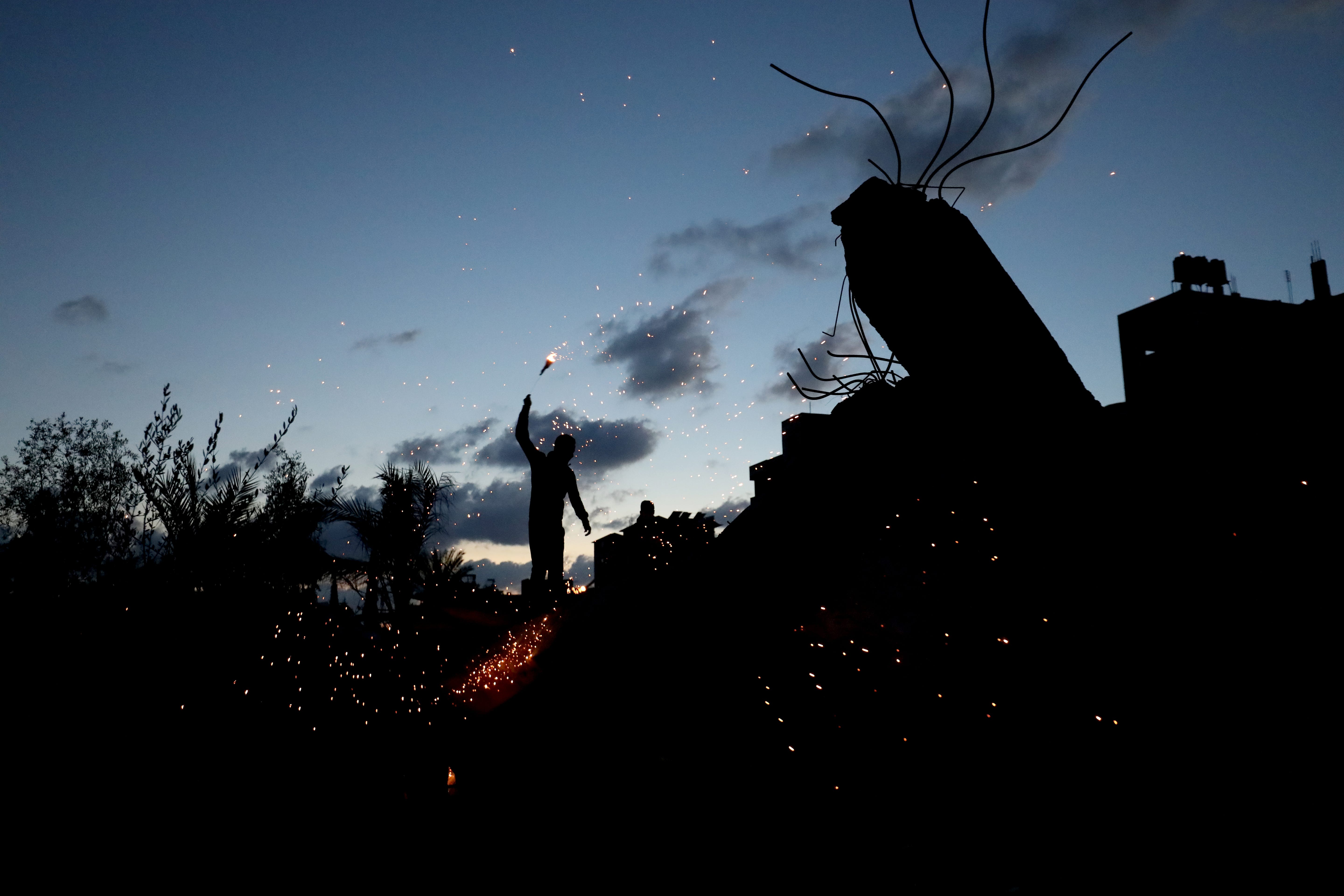In Gaza, a moment where death and the ceasefire intersect
Journalist Hossam Shabat reports on three days of horror in Gaza City

Story by Hossam Shabat
GAZA CITY — In these final hours, where blood is mixed with prayer, civilians in northern Gaza are living the cruelest of moments waiting for the ceasefire to come into effect. Three full days between the announcement of the deal and its implementation. Three days of death as the merciless bombing continues. Time now is measured not in minutes, but in lifetimes of pain and tears. With every passing moment the anxiety and tension of the people here grows, as they wonder whether they will stay alive long enough for the fire to cease.
The occupation intensified its bombing in the first hours after the ceasefire was announced. Fifty airstrikes in less than 24 hours. They targeted shelters, homes, and tents of the displaced. More destruction, more blood. Just minutes after the announcement, the courtyard of Al-Ahli hospital was filled with martyrs. Administrators were forced to set up a makeshift field hospital in the courtyard to handle the flood of wounded coming in.
From the moment the ceasefire agreement was signed, ambulance and Civil Defense crews have been working around the clock. The scenes inside the hospital were very difficult, with more than 70 martyrs arriving in just 24 hours, including more than 20 children. The occupation army did not stop there. They targeted the al-Falah school; they bombed an entire residential block in Jabaliya; they killed families, like the Alloush family, whose bodies have not yet been recovered and still lie under and over the rubble. The children I saw that night appeared happy but they were no longer living, their faces frozen in a mix of smiles and blood.
We bore witness to heart wrenching scenes in these hours of death; families in Al-Ahli hospital bidding bitter farewells to their fallen loved ones. One of the mothers said in a trembling voice: "Oh God, in her final hours, my daughter was so happy with the news of the ceasefire, she was ululating, but her joy was cut short. How can the world be like this?”
These moments are the embodiment of the opposing forces of hope and tragedy, between unfulfilled joy and the sorrow that haunts everything around us.
As the bombs rained down, families did not leave their homes and shelters for fear of being killed in the streets. They chose to disperse family members among several different places for fear of being all killed together and their bloodlines wiped out, as has happened to so many families in Gaza in this genocide. People were afraid to go outside to forage for their daily supplies.
In the midst of all of this, journalists continued to receive death threats. Hours ago, I received a call from someone speaking Hebrew, warning me to stop filming, which made us afraid to move around during this critical time.
We are living in a moment where death and the ceasefire intersect. The hope for a lasting peace lingers as a dream for millions. Every time the war machine stops, people breathe a sigh of relief, but as time passes, the fear and anxiety return. The peace we yearn for will only come through radical political change, by ensuring the rights of civilians and providing an environment of safety and life. Until then, this time of pain of blood will continue to haunt this devastated landscape and the return to a normal life will remain a distant dream.
*Translation by Sharif Abdel Kouddous




As a Jewish-American named after a Holocaust victim, I'm appalled and ashamed that Israel, founded by Holocaust survivors, is committing a genocidal holocaust in Gaza aided and abetted by the Biden administration. The lack of humanity is an affront to the memory of Jimmy Carter and should never be supported by a modern, so-called -civilized, democratic nation. It's a disgrace and a blot on Joe Biden's legacy.
The occupation may, nay, must end. They can never make amends for what they have done.
We can only go forward, not with retribution, but with the promise that this time, “Never Again,” means never, for anyone, anywhere. And means we will no longer permit our governments, to commit murder against anyone, anywhere. Thank you for your article.